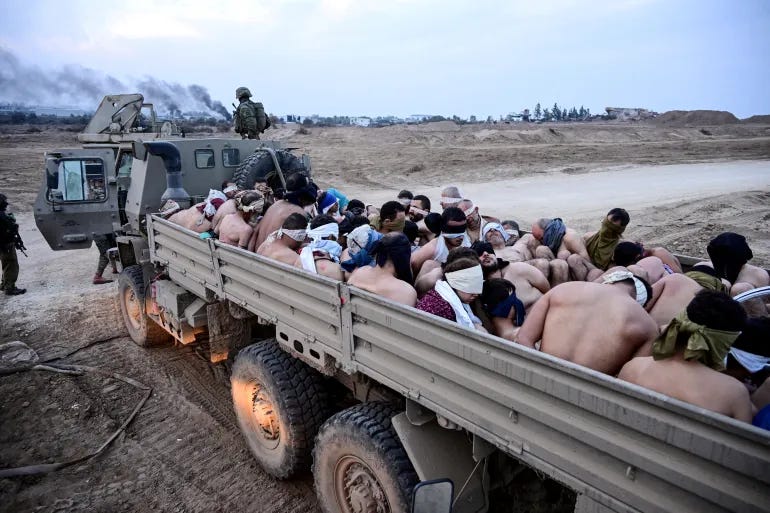Israel-Gaza Ceasefire Deal: Which Palestinian Prisoners Could Be Freed?
Up to 1,650 Palestinian prisoners may be released in exchange for Israeli captives as part of the ceasefire agreement.
Thousands of Palestinian prisoners, many held without charge for years in Israeli jails, are preparing for potential freedom as part of a ceasefire deal between Israel and Gaza. However, the specifics of the deal remain unclear, as the full text has not been released, and media outlets have reported varying details about the ratios involved in the exchange.
There are currently over 10,400 Palestinians imprisoned by Israel, not including those detained during the last 15 months of conflict. As part of the deal, Palestinian prisoners will be released in exchange for Israeli captives held in Gaza. The Israeli Ministry of Justice has already released a list of 95 women and children who could be freed on Sunday, contingent on the implementation of the ceasefire. However, the full list of names and the precise number of prisoners involved is still unknown.
In the first phase of the agreement, over 1,000 Palestinian prisoners are set to be swapped for 33 Israeli captives. The terms of the deal also specify that the release of Palestinian prisoners will follow certain ratios, including a 1:3 ratio for those sentenced to life imprisonment and 1:27 for prisoners serving other sentences.
The exchange of prisoners has long been a key component of Israeli negotiations with Palestinian groups. Past deals, such as the 1983 and 1985 prisoner swaps, as well as the 2011 exchange involving Israeli soldier Gilad Shalit, bear similarities to the current negotiations. These exchanges have often involved large numbers of Palestinian prisoners in return for Israeli captives, with political and military figures among those freed.
Some high-profile prisoners, including Marwan Barghouti, a leading figure of the Palestinian political party Fatah, and Ahmed Saadat, the head of the Popular Front for the Liberation of Palestine (PFLP), are widely believed to be part of the negotiations. Barghouti, in particular, is seen as a unifying figure who could play a significant role in Palestinian politics if released.
While the conditions of many Palestinian prisoners have been a source of international concern, with reports of torture and mistreatment in Israeli jails, rights groups have long called for reforms. The system includes a high number of detainees held under administrative detention, where individuals are imprisoned without trial or charge.
As the ceasefire deal progresses, the fate of Palestinian prisoners remains a key issue in the ongoing conflict, with many families anxiously awaiting the release of their loved ones. The exchange is seen not only as a step toward alleviating immediate suffering but also as a potentially significant political development in the broader context of the Israel-Gaza relationship.


